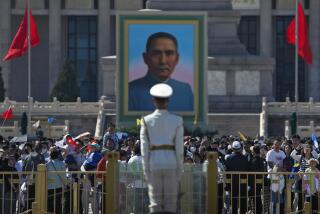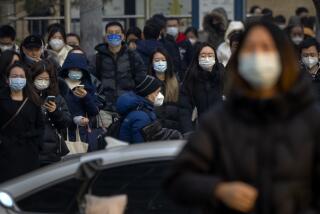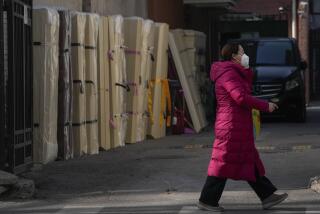A migrant worker tries to save his village from the coronavirus — and gets arrested
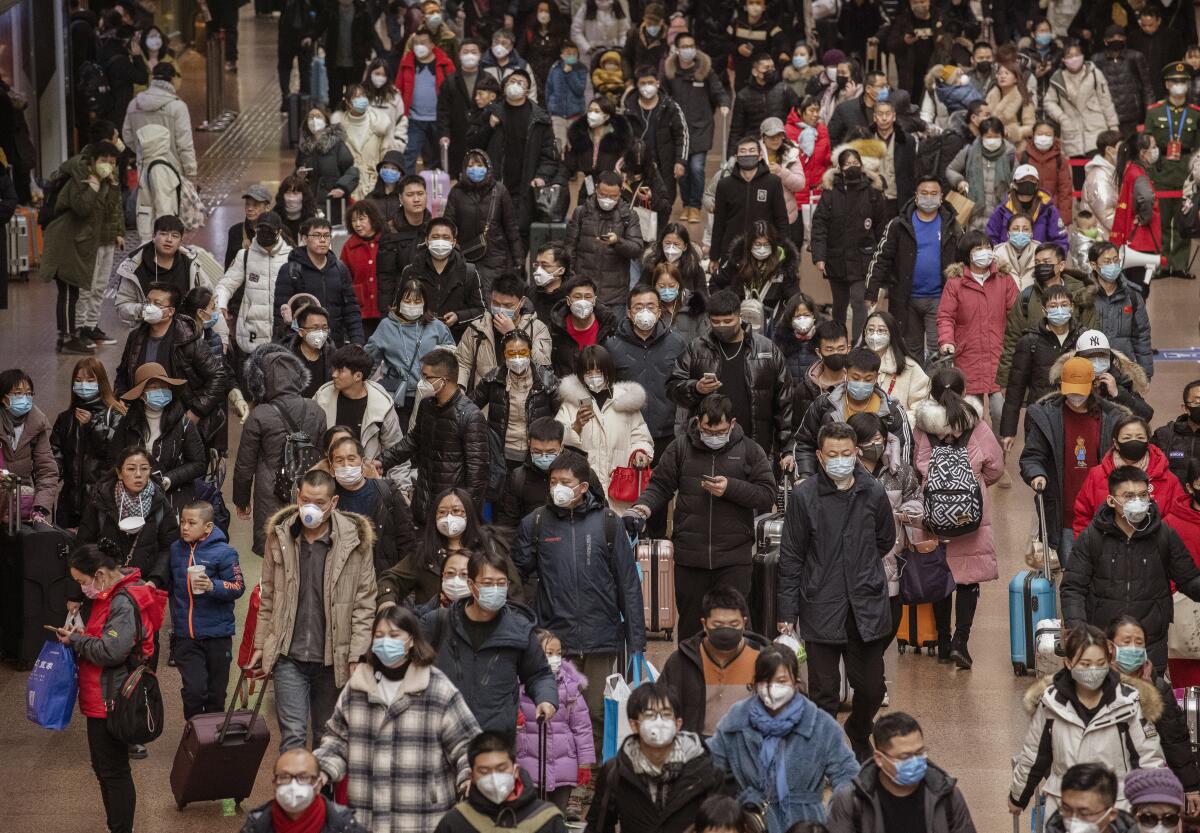
When Gao Fei warned members of his family about the deadly virus sweeping their way, he never suspected that they would laugh at him, or that he would end up being arrested.
The migrant worker had left Hubei province last year to freelance as a welder in southern China. His family members stayed in their village in Qichun county less than two hours’ drive from Wuhan, the epicenter of a coronavirus outbreak that has killed more than 210 people and infected more than 9,700.
Gao sensed something dangerous was coming. He had breached China’s firewall to follow online news of the coronavirus as it emerged this month. He immediately began messaging his parents and siblings, including his brother, who drove a taxi between their village and Wuhan every day.
“Stock up on food, masks, disinfectant and medicine. Wash your hands. Don’t go to Wuhan!” he told them. They laughed. No one even knew of the virus in their hometown, they said, and nobody was wearing a mask. Gao, 33, sent a pack of surgical masks to his brother anyway. He felt helpless and enraged.
Gao was arrested Wednesday after tweeting that President Xi Jinping should resign over the government’s handling of the virus. The tweet about Xi disappeared, but another one he’d written earlier, as authorities announced new penalties for “spreading rumors” about the virus outbreak, remained: “Bring it on. This is a confrontation between a government that neglects life and a people who are saving themselves. Truth is our greatest weapon for our own salvation.”
Gao’s predictions have come to pass as the coronavirus spans continents and leaves China’s already overburdened medical system straining under a health emergency that has steadily accelerated. The communist leadership is entangled in its greatest medical and political crises in years, even as it attempts to assure other nations that all is under control.
On Thursday, the World Health Organization, which had earlier praised China’s handling of the outbreak, declared the outbreak an international “public health emergency.”
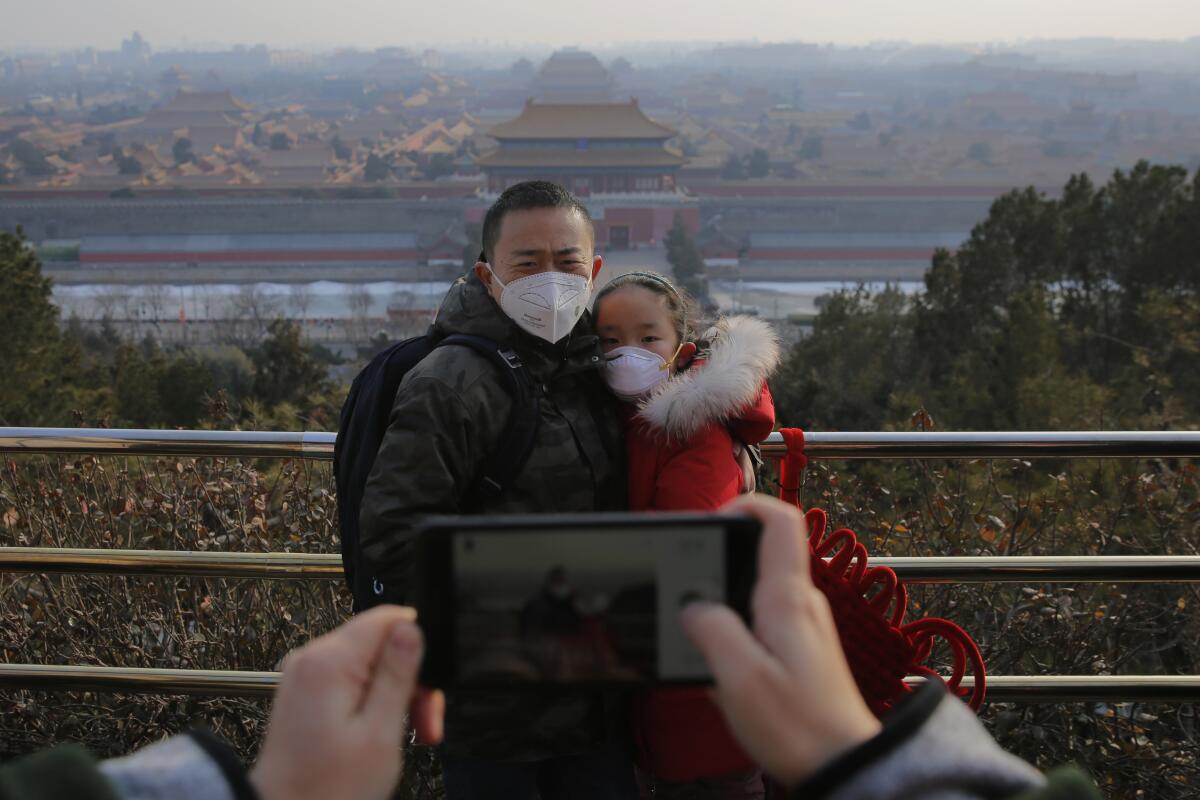
Residents, medical staff and relatives of those who are ill or have died in Hubei province are demanding help. Stories of family members stricken with coronavirus symptoms who died without being diagnosed reverberate through Chinese social media, raising suspicions that the government is underreporting the number of those infected.
State TV aired video Thursday of a central inspection team questioning health officials in Huanggang, a district that includes Gao’s family home and now the city with the second-most infections and deaths after Wuhan. A top official was fired after being shamed on TV for failing to give answers on how many cases the city was dealing with and how many hospital beds it could provide.
But, as Gao discovered, bureaucracy and a shortage of resources are slowing China’s response and increasing the risk of contagion. Even doctors, many of whom have no access to test kits to determine whether they have the virus or not, are falling ill with fevers and other symptoms as they treat patients. One doctor in Wuhan called China’s emergency hotline for ambulances to pick up urgent cases only to be told that 700 people were on a waiting list.
It wasn’t until Zhong Nanshan, an 83-year-old doctor widely respected for having spoken truthfully during the SARS epidemic of 2003, said on TV on Jan. 20 that the virus was contagious between humans, that most Chinese people began to worry.
That’s when Gao rushed home, taking a train to Hubei on Jan. 22. His grandfather and sister bought supplies while he was on the way, stockpiling enough food for two months at home. Their preparation came just in time. Wuhan was put on transportation lockdown on Jan. 23. Since then, China has quarantined at least 15 more cities that are home to more than 50 million people — more than double the populations of Los Angeles, New York, Chicago and London combined.
Gao’s family village in Qichun county is enforcing its own blockade. Every morning, the village leader parks his van in the center of a road at the village entrance, blocking outsiders’ entry to limit the chances of virus exposure. But inside, villagers continue to meet in groups, especially to play mah-jongg, Gao said — many without wearing masks, unfazed because no one in their village has yet been infected.
“They’re not looking at the news, just playing mah-jongg,” he said in a phone interview Wednesday. “It’s like we live in two worlds.”
When he first arrived home, Gao urged government officials to distribute medical supplies and to prevent villagers from gathering for the Lunar New Year.
“They said, ‘We don’t have orders from above,’” Gao said. Local officials refused to act without getting notice from their superiors, he said, and now, they are too overwhelmed monitoring people who’d been to Wuhan to care about potential contagion in mah-jongg groups.
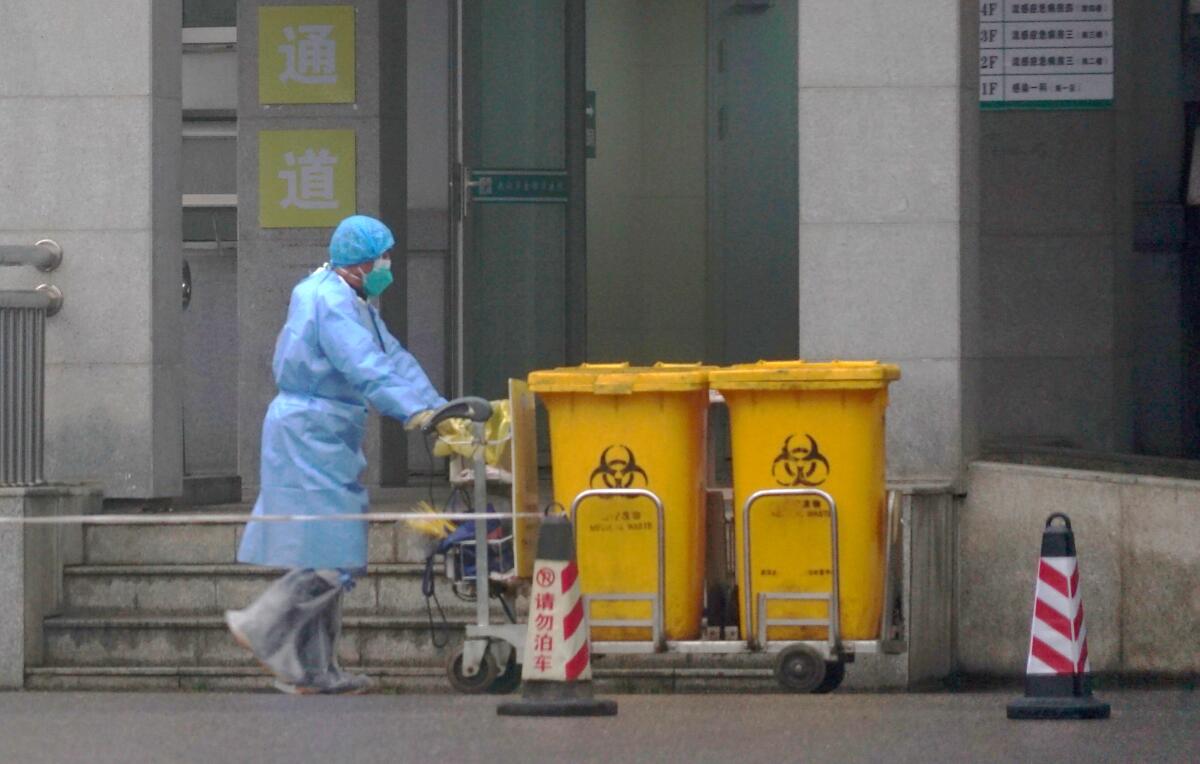
China’s bureaucratic medical system and underlings’ fear of handing party bosses bad news were significant obstacles. Officials, usually Communist Party cadres who are motivated by promotions for meeting superiors’ targets rather than accountability to the people they govern, are slow to respond to needs on the ground.
Another urgent problem was the shortage of supplies. Wei Peng, a doctor in his 40s at a community hospital in Wuhan’s Qiaokou district, about two hours from Gao’s family home, said in a phone interview that at least 12 out of 59 doctors at his hospital, himself included, were working despite being sick with fevers, coughs and lung infections — symptoms of the coronavirus.
“We don’t have the test kit, and we don’t have time for tests either,” Wei said.
Wei suspects he became infected while treating a patient on Jan. 19, when Chinese authorities were insisting the disease, which is suspected to have started in a live animal market, was not transmissible between humans. Wei was wearing only a disposable surgical mask and no goggles when the patient coughed in his face.
“As long as you’re not diagnosed, you must go to work,” said Wei. He and other doctors spend their nights at the hospital because of transportation shutdowns. “We know that we are causing risk of contagion to the patients. But if you don’t work, then what? There’s no one to replace you. Your colleagues must bear more, and they’re also infected.”
The official tally of infection cases was “definitely not reliable,” Wei said. He noted: Too many patients are not being counted. There are not enough test kits. Not enough doctors. Not enough hospital beds. Not enough medicine. Not enough masks. Not enough cars to take patients to the hospital.
“There are a lot of patients and they are anxious,” said Wei, who fashioned his own goggles out of plastic sheets. “Many are calling here and you can hear them shouting on the phone, ‘Save me, save me,’ and they are crying, and there’s nothing we can do.”
In Qichun, Gao ventured out of his village Tuesday to visit the county hospital. A director there said they had 1,000 good surgical masks left, which would be gone in a matter of days. This week, the director said, armed police in Qichun were sent to a factory to confiscate any medical supplies they could find. They returned empty-handed.
“All the country’s supplies are going to Wuhan, but what about us? What should we do? We wait to die?” Gao said. “Everyone is fighting for supplies, and they just try and take however much they can get. At this point, it’s a matter of survival.”
Frustrated and worried, Gao donated the last 10 face masks from his brother’s box to the Qichun county hospital on Wednesday. He sent out a flurry of tweets afterward, including one criticizing Xi Jinping’s arrogance in refusing help from abroad and calling for “removal of the head,” meaning the Chinese leader should resign.
That’s when the police showed up.
More to Read
Start your day right
Sign up for Essential California for news, features and recommendations from the L.A. Times and beyond in your inbox six days a week.
You may occasionally receive promotional content from the Los Angeles Times.
